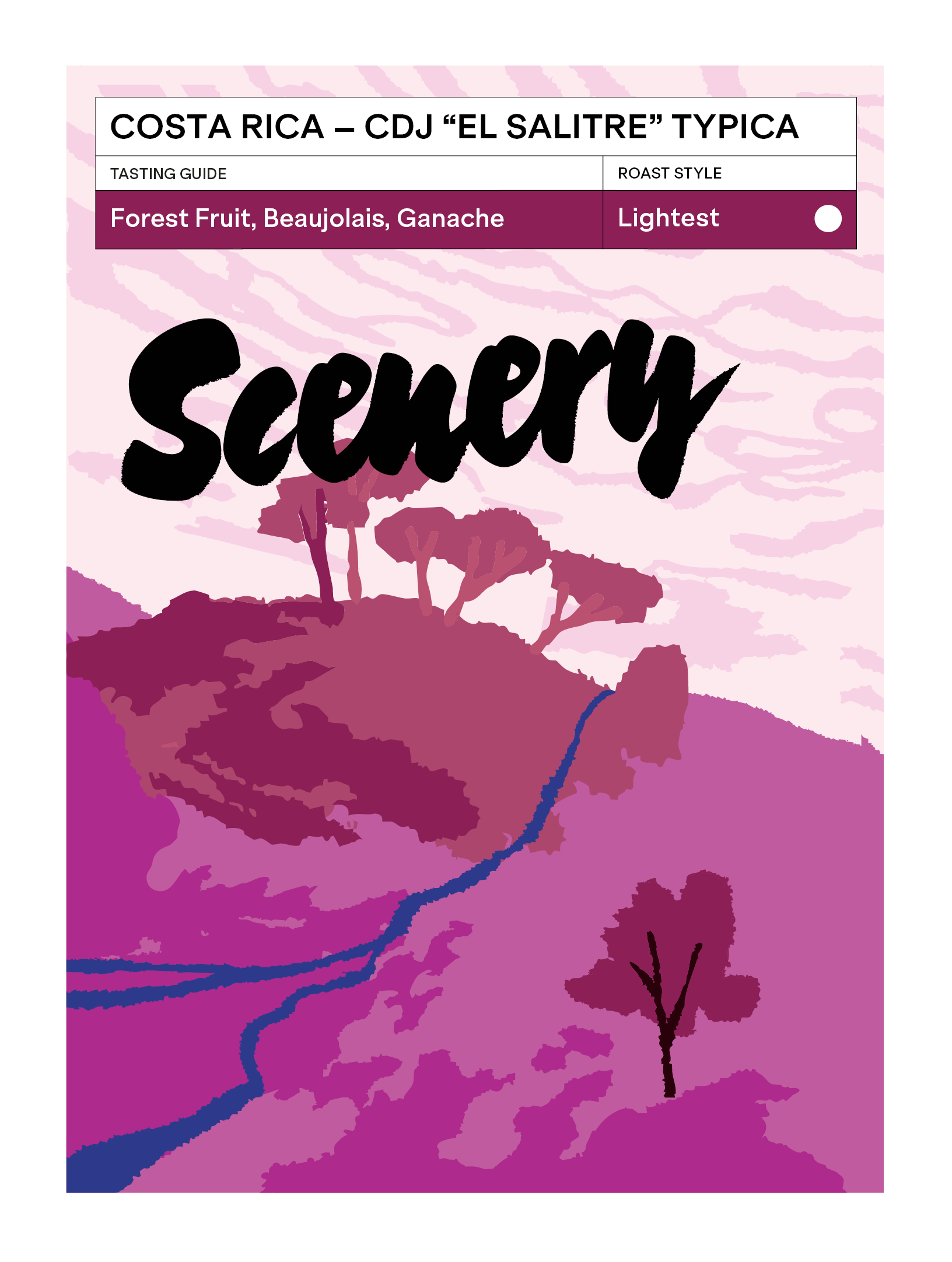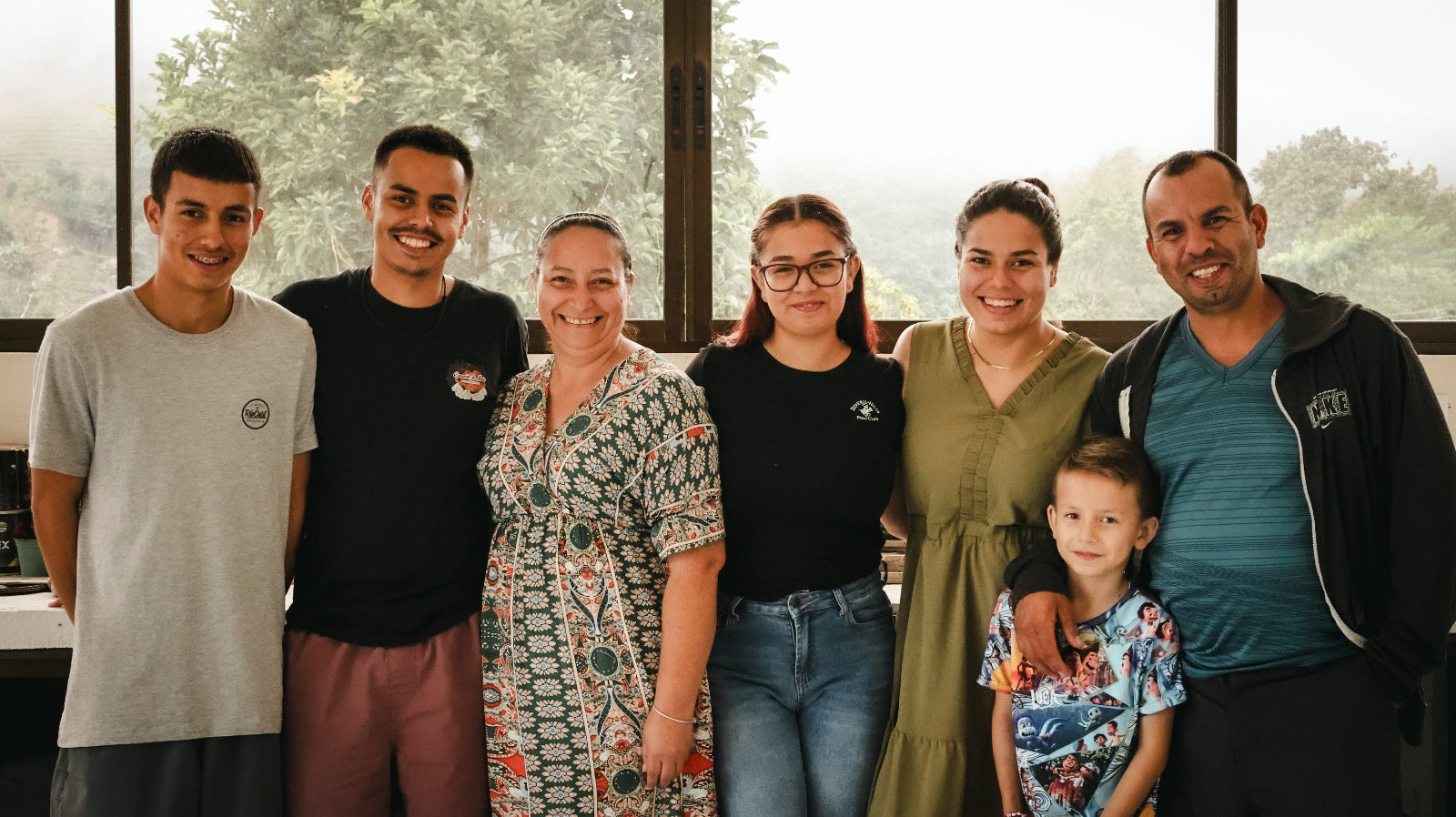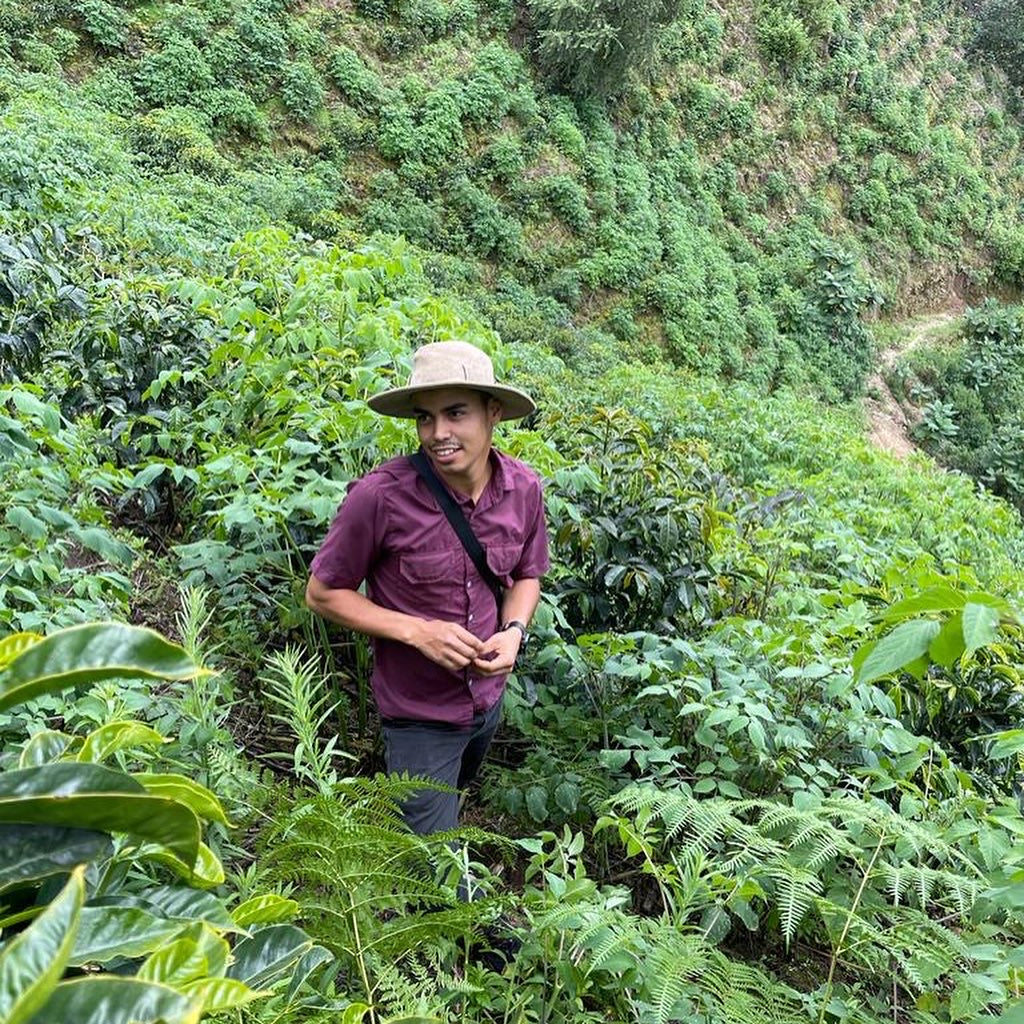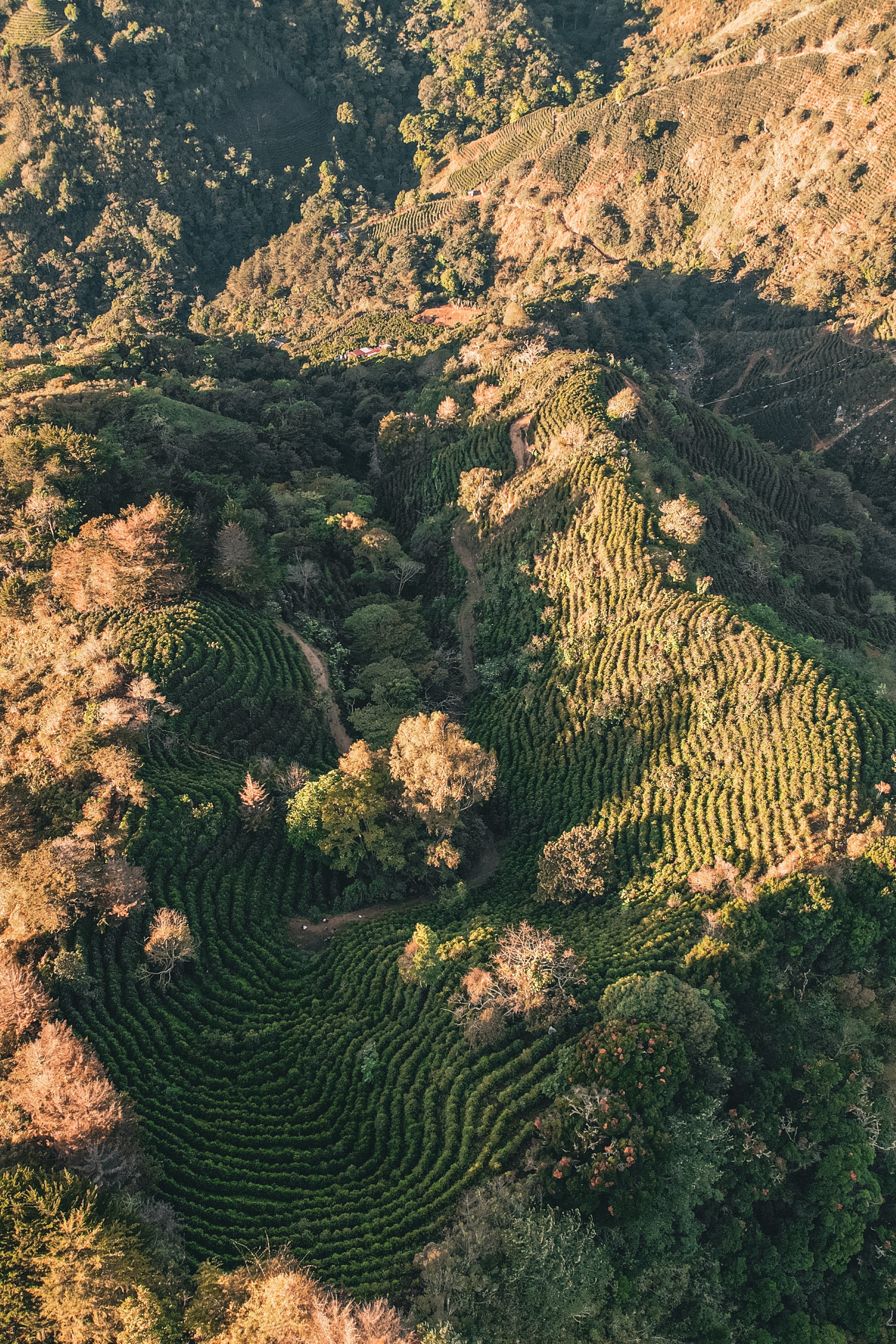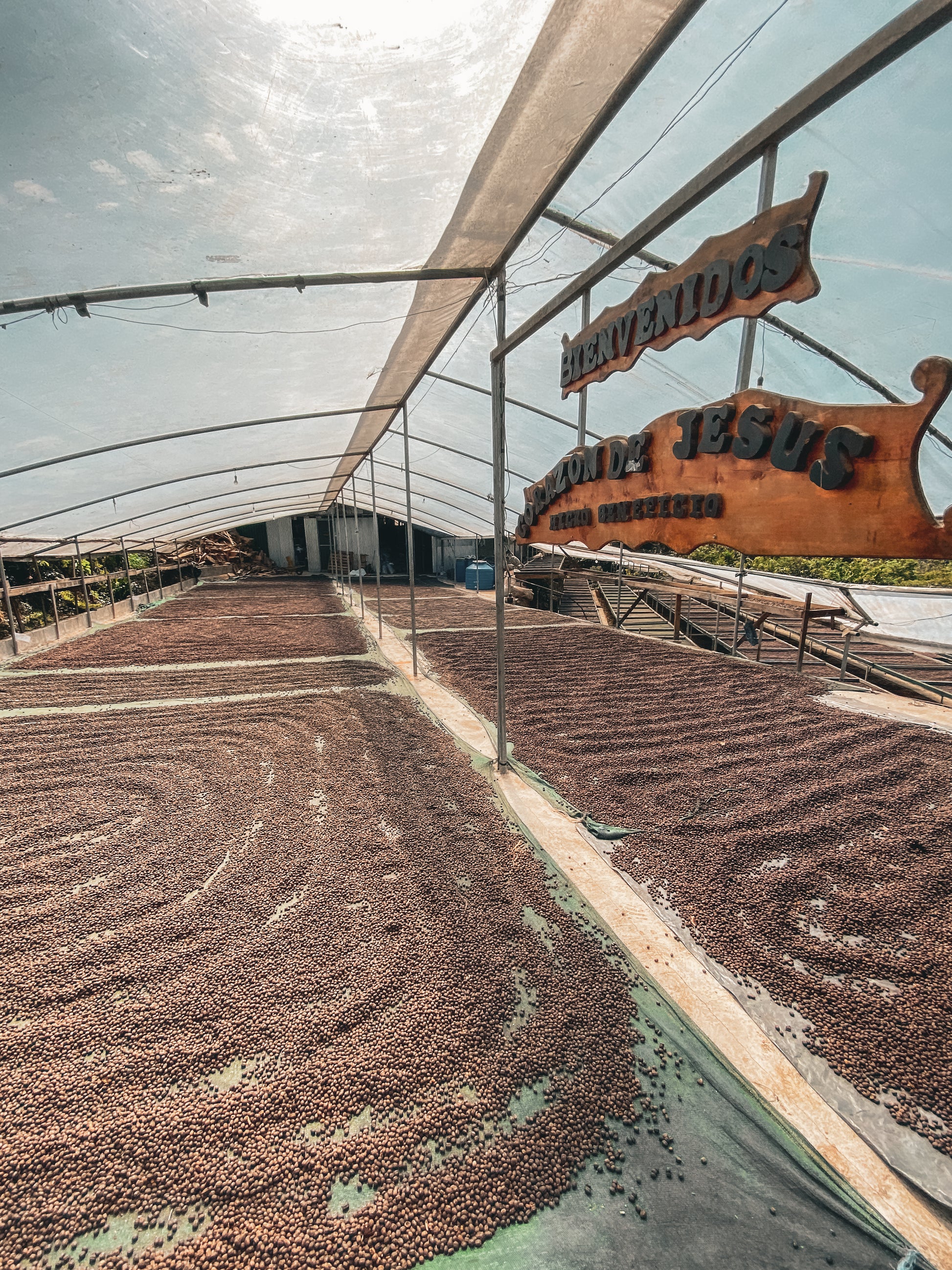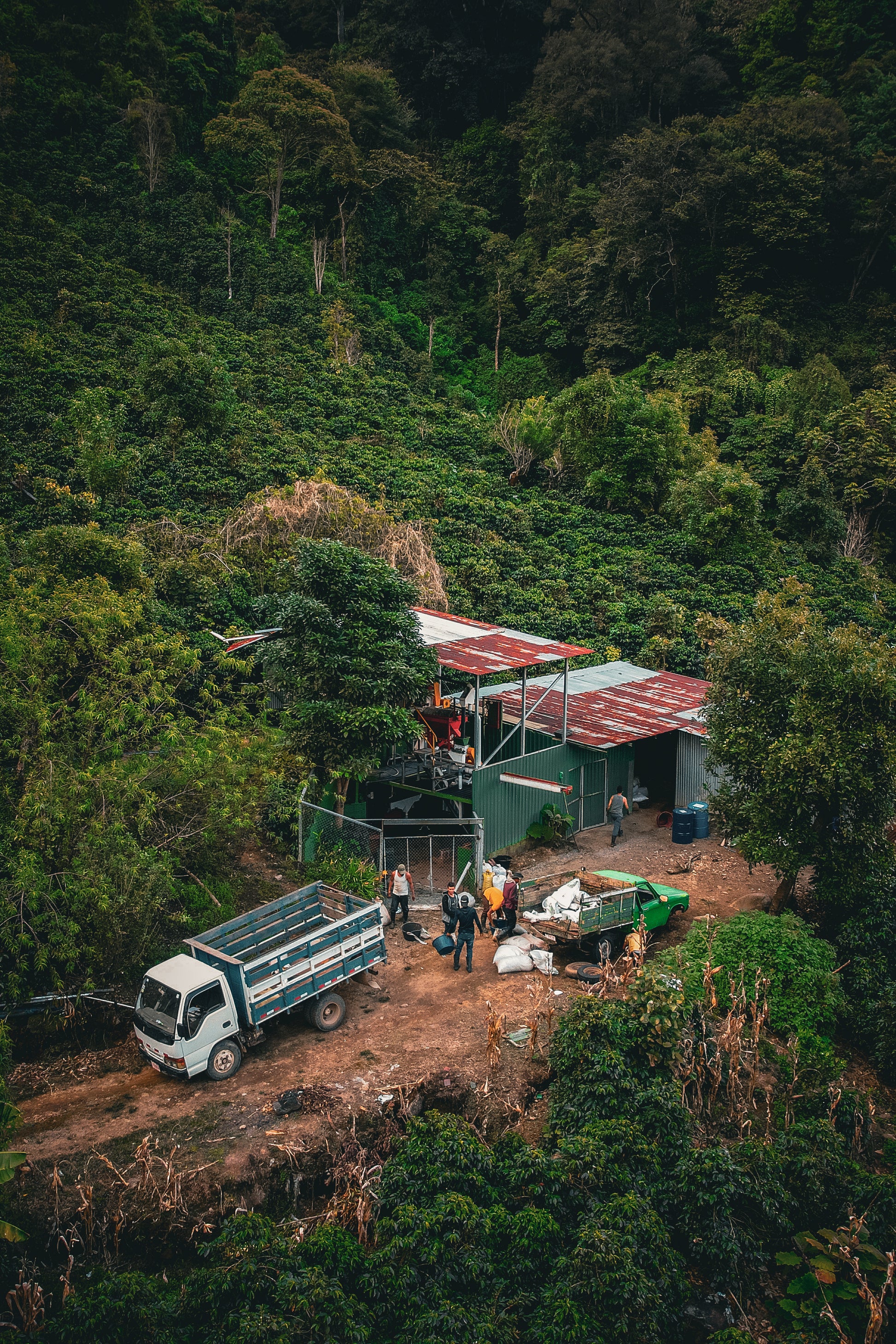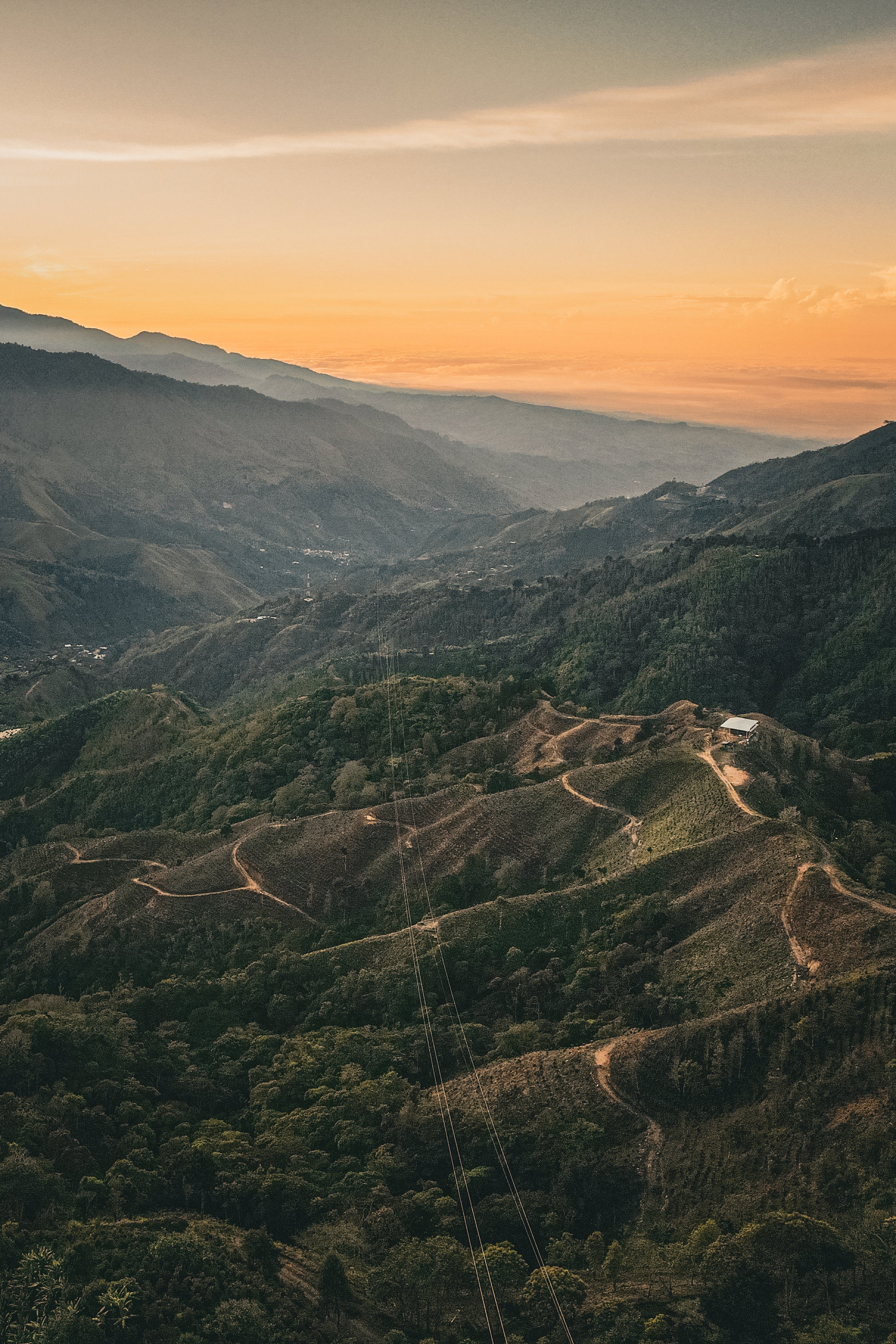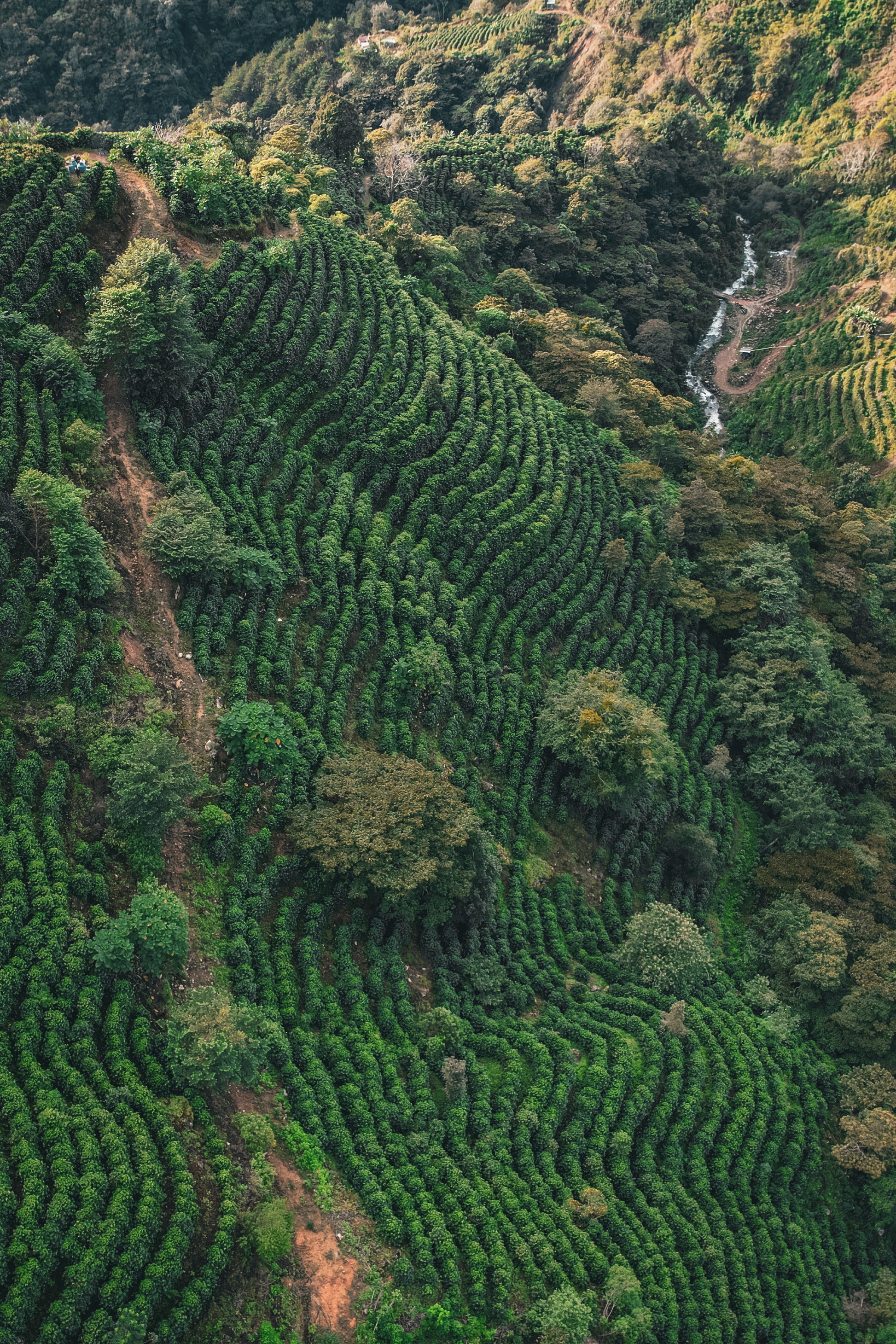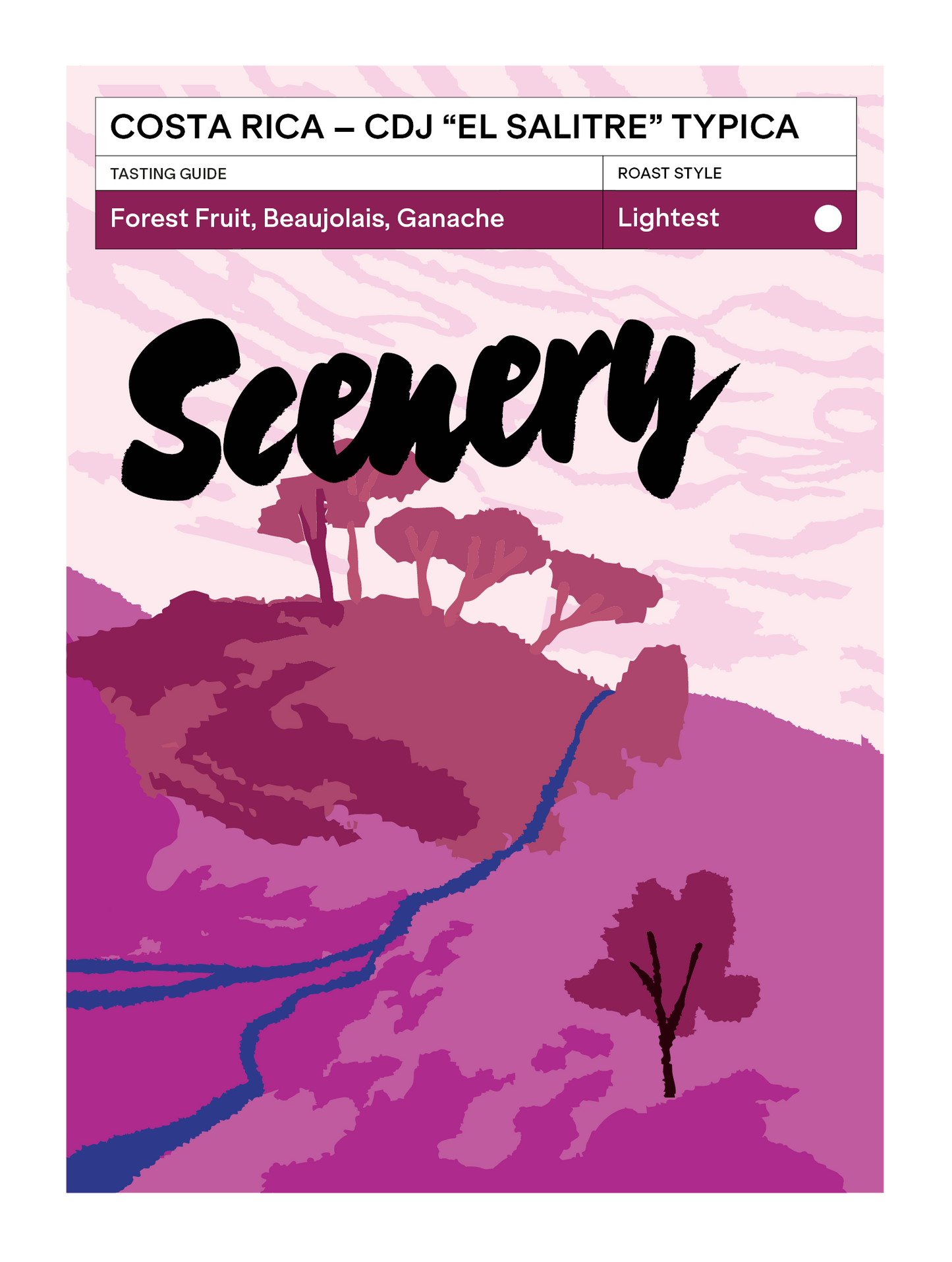
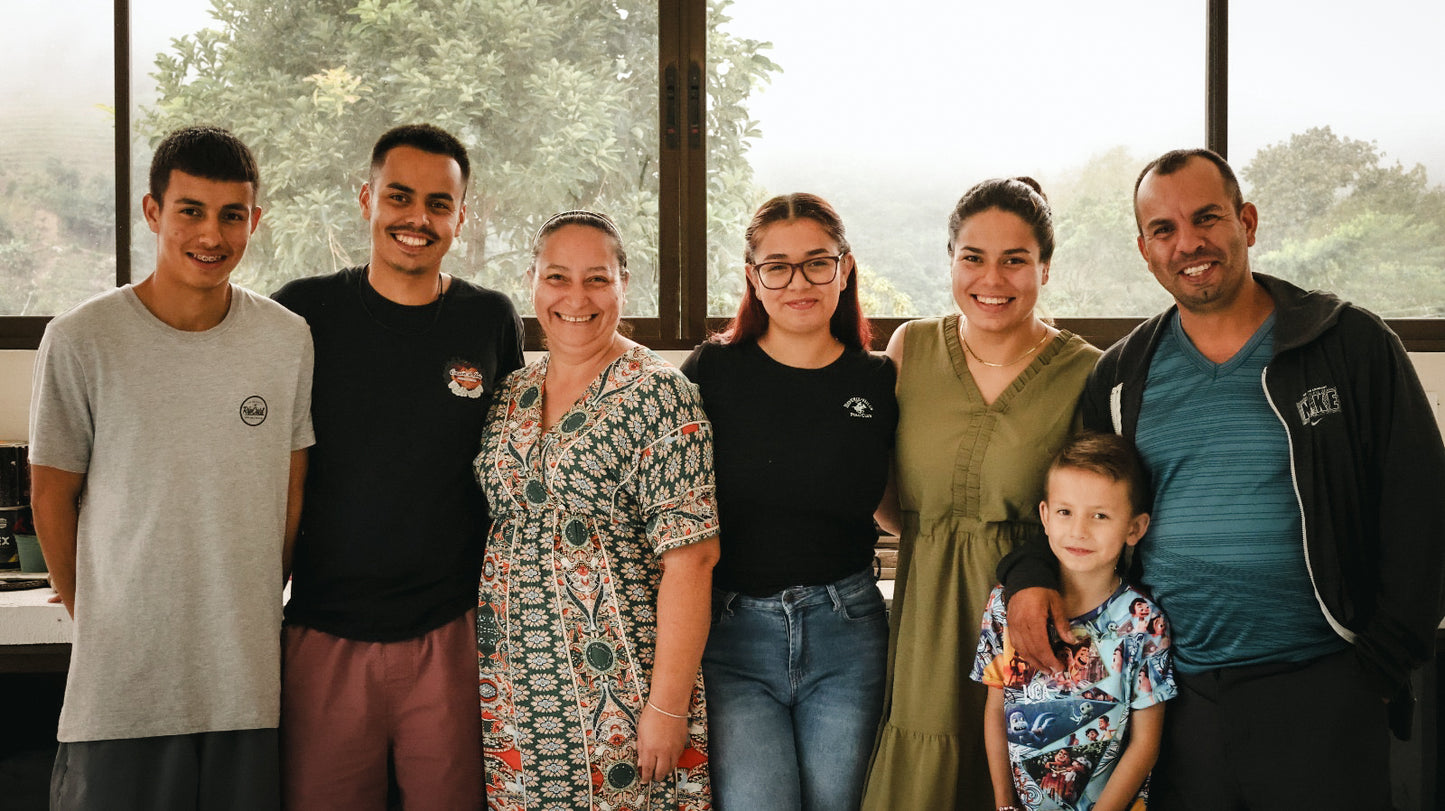
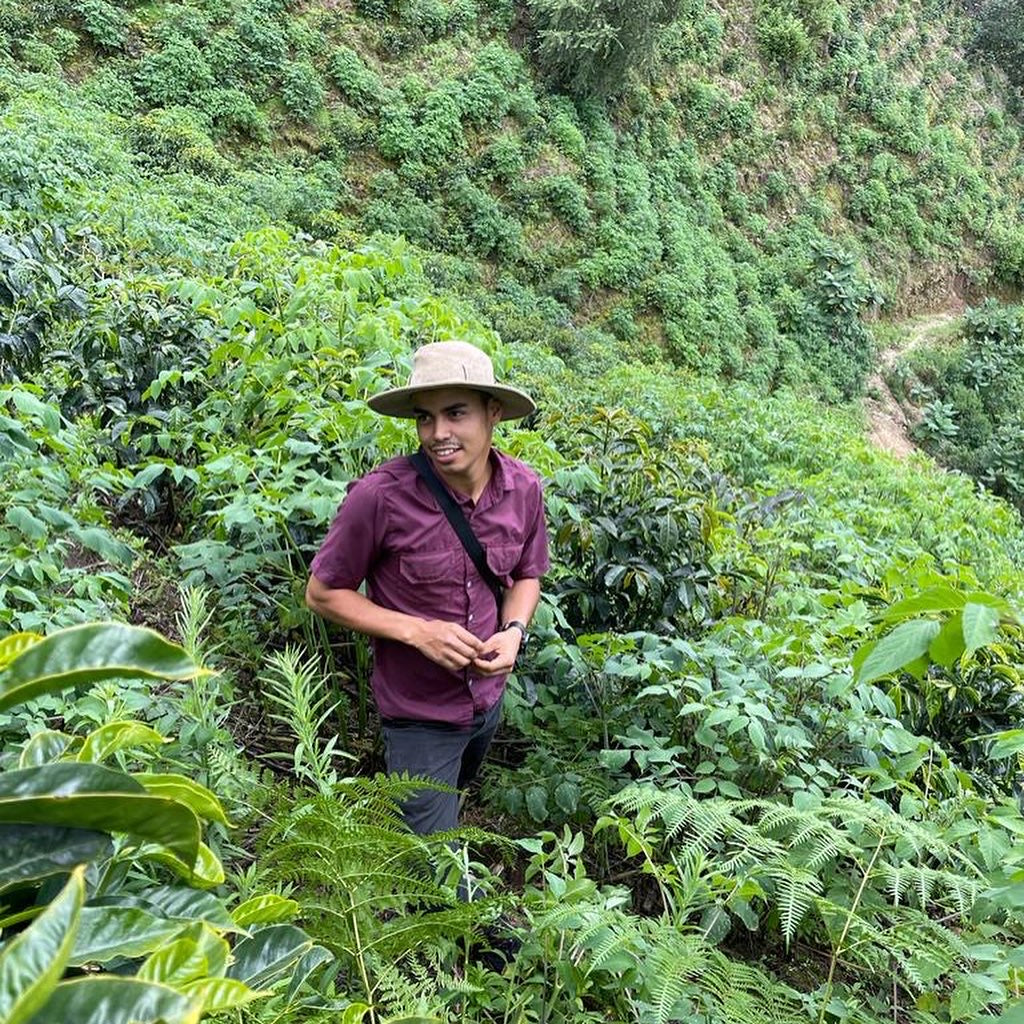
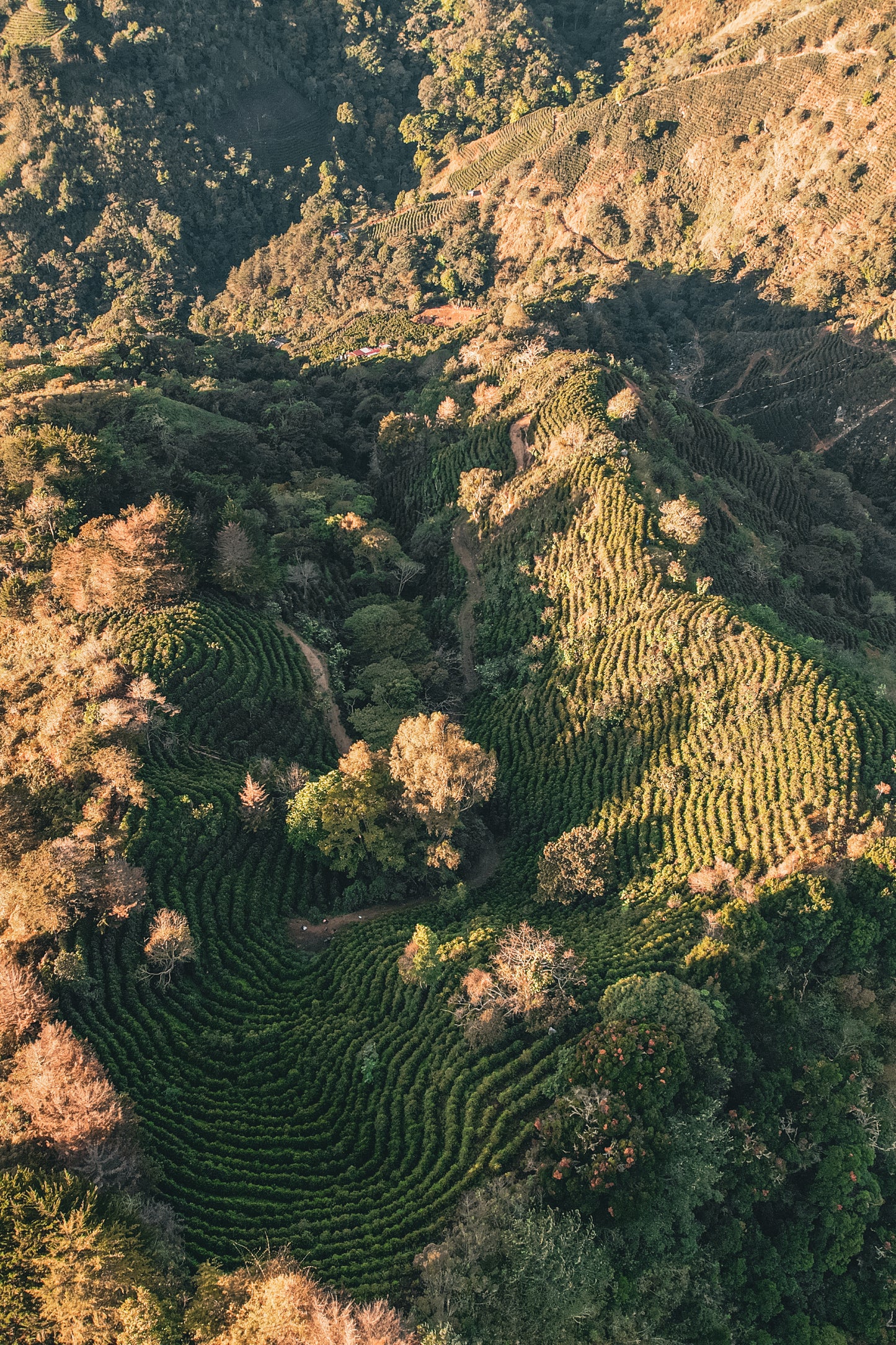
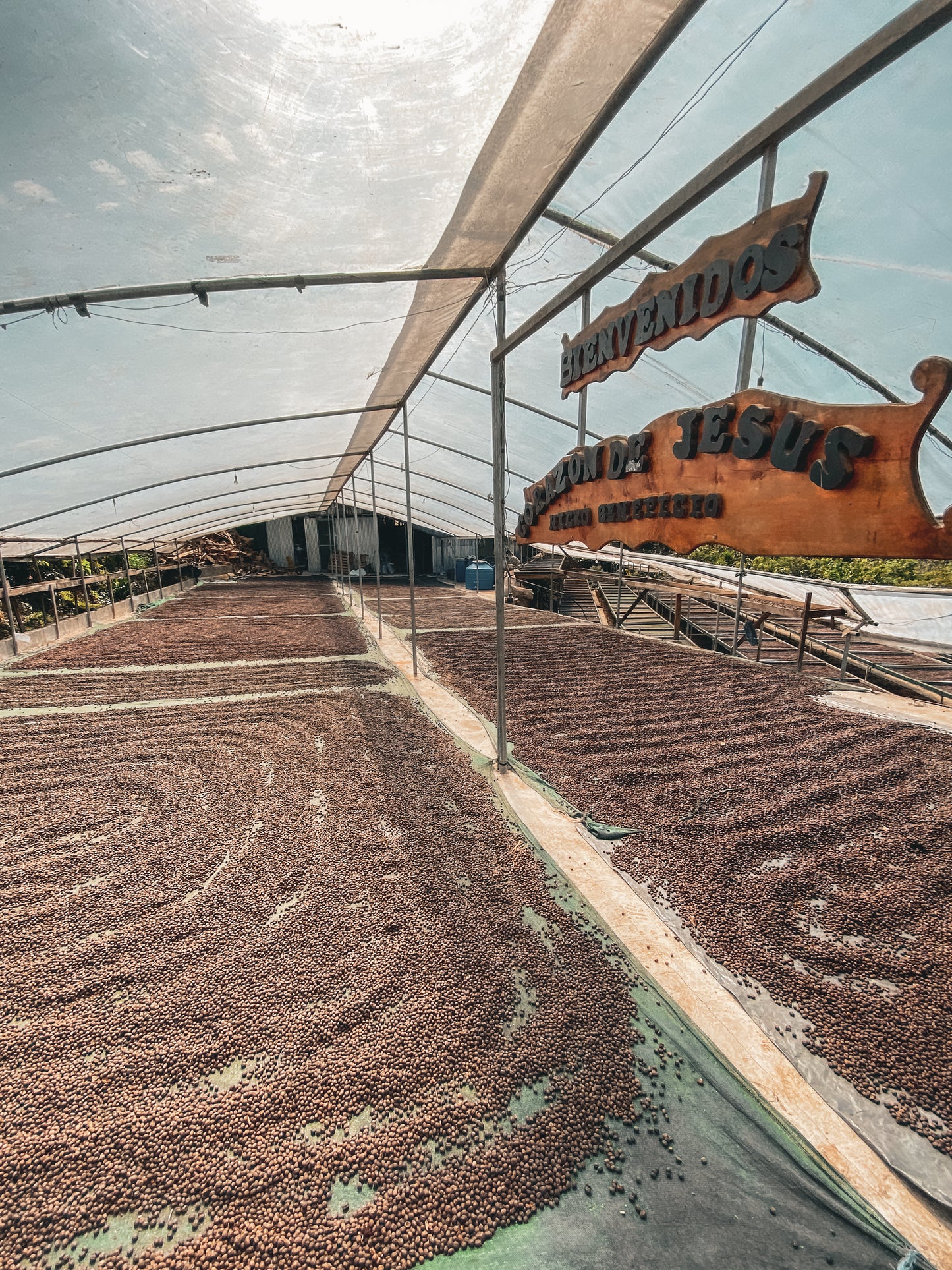
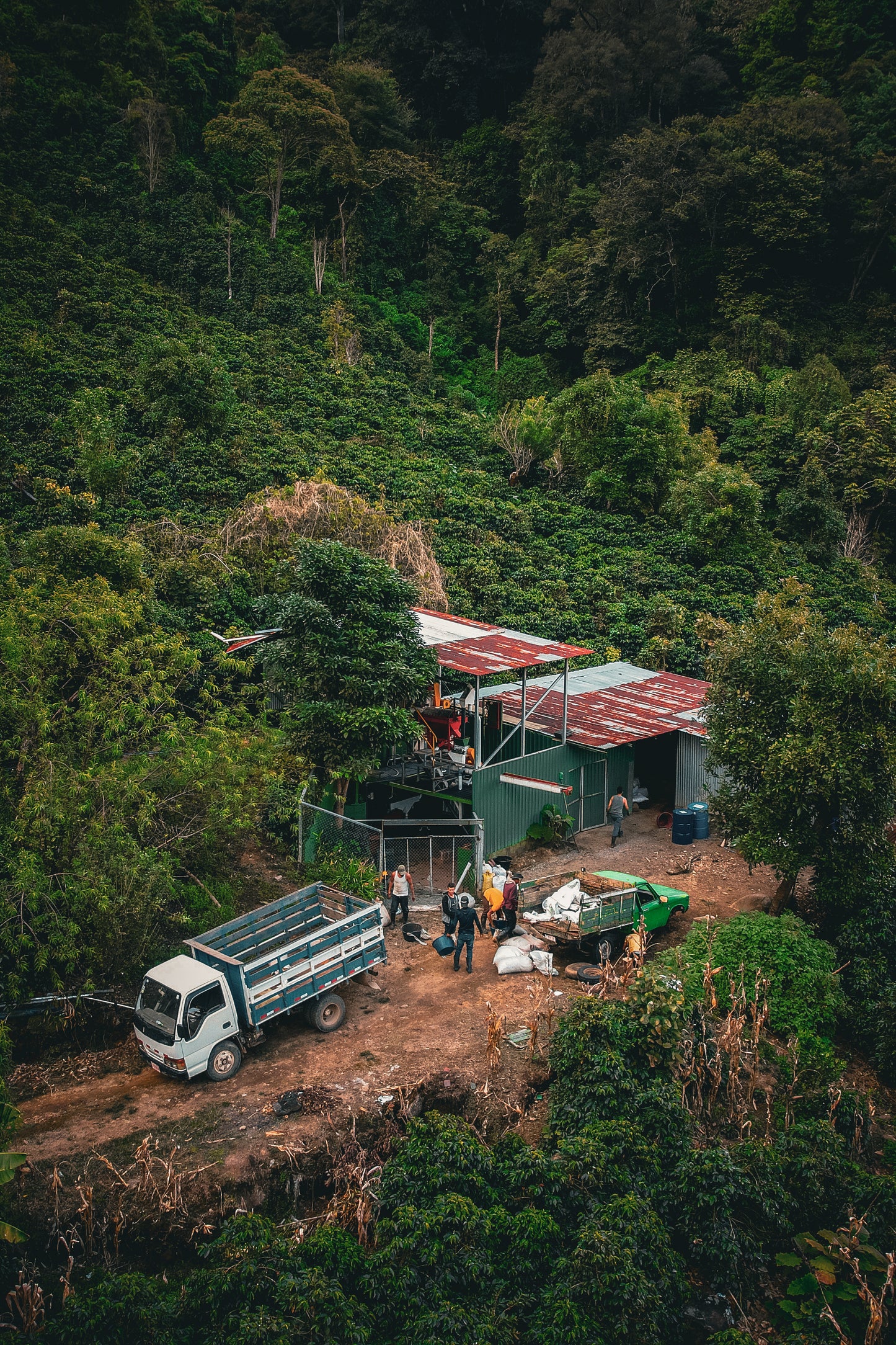
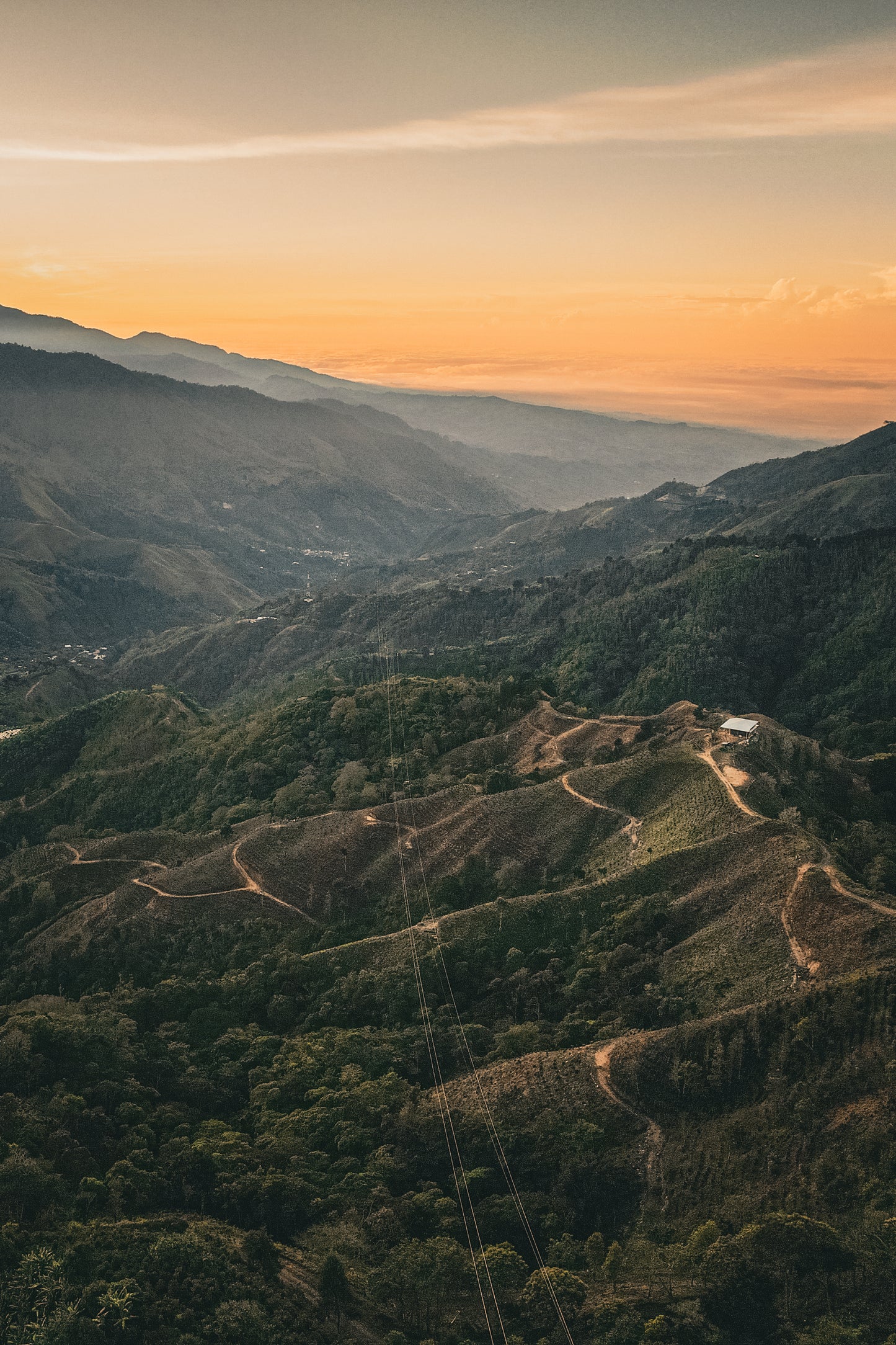
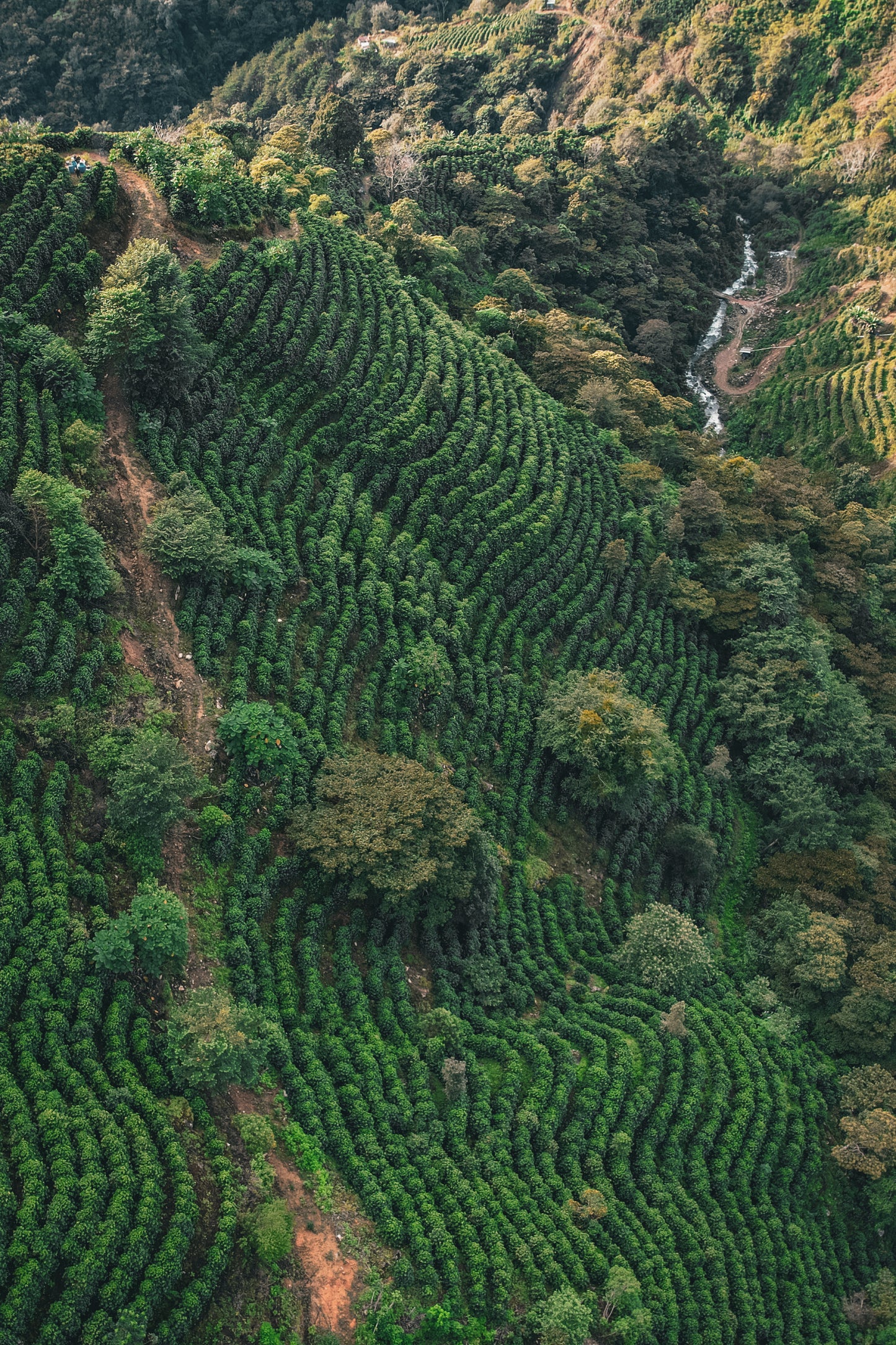
Brew Guide:
Best Brewed with: Filter
Lightest Roaster Influence: This is a coffee that's had quite a lot of extra in-cherry fermentation, that would be incredibly easy to tip into more cacao driven funk. Luckily, we've had a lot of experience roasting coffees like this - where we can tease out a fine balance between the process character and still find the variety underneath. Slightly gentler + longer heat application overall and a short, lower temperature end is tasting great!
Best Rested: 3-4 weeks
Filter: 62g/L & 94°C, with rest we like to move down to 62g/L & 91°C
Espresso: Trad - 18g/40g 28-32s. Can work as turbo spro with rest
We’re tasting: Process forward aromatics of milk chocolate, red wine & mixed berries. In the cup it's super sweet, with milk chocolate ganache, with hints of yoghurt coated banana chips, macerated forest fruits, and the lively bubblegum & berry notes of Beaujolais Nouveau, with a great texture and enduring sweetness.
Traceability
Country of Origin: |
Costa Rica |
Region: |
Chirripó, Brunca |
Producer: |
Familia Alvarado Fonseca |
Farm: |
Farm: Finca El Salitre Mill: Corazón de Jesús |
Variety: |
Typica |
Elevation: |
Farm elevation: 1850 MASL Processed at 1300 MASL |
Process: |
Extended Fermentation Natural: Ripe cherries picked and taken to the Corazón de Jesús micromill. Cherries floated and skimmed before placing in bags for initial fermentation at controlled temperature of 18-20°C for 2 days. Fermented cherries transferred to raised beds for slow sun drying over 4-7 days, with careful attention to climate and dehydration rate to preserve flavours and aromas. Once the outer cherry pulp is sufficiently dehydrated, the cherriesare returned to bags for second fermentation phase (a wine-inspired process) lasting 8-10 days at 20-22°C indoors. Cherries then dried on patios for 15 days, with careful temperature management & movement.
|
Import Partner: |
Ally Coffee |
Harvest: |
Crop 24/25 Arrived UK: 13/08/25. Second harvest purchasing coffee from CDJ |
The Story
Costa Rica's micromill revolution began in the early 2000s, allowing small producers to process their own coffee rather than selling to large cooperatives or centralized mills. This shift enabled farmers to control processing methods, maintain lot separation, and capture more value from quality-focused production. Corazón de Jesús is emblematic of this movement, with the family gaining independence to experiment with fermentation and processing techniques, and capture more value for their coffee. This micromill revolution really set Costa Rica apart - for many years, the most cutting edge naturals and honey process coffees were coming out of CR, in a way that many origins are now only beginning to catch up to.
Jhon Alvarado Abarca and the Alvarado Fonseca family are first-generation coffee producers who established the Corazón de Jesús wet mill in November 2015. The family transitioned from growing vegetables to coffee in 2009, with their first notable harvest in 2012. They built their processing facility with virtually no budget, using borrowed equipment and hand-constructed drying beds for their initial harvest.
The family has achieved consistent success in Costa Rica's Cup of Excellence competitions since their first entry in 2021. Their trajectory includes fifth place in 2021, third place in 2022, second place in 2024, and an unprecedented sweep in 2025 with first place finishes in both washed and natural categories. The family currently manages five farms in the Brunca region: El Salitre, Los Toños, La Torre, Vista Paraiso, and La Cusuka.
Corazón de Jesús processes coffee from all five family farms using a plethora of methods including the more traditional - washed, honey, natural, up to the higher intervention techniques - anoxic ("anaerobic"), and natural reposado/extended fermentation. The facility includes African raised beds with weather protection, climate-controlled fermentation spaces, hermetic tanks, and extensive drying patios. The family has gained a reputation for experimental processing and developing very precise fermentation protocols across their lots, both for individual varieties as well as the individual plots on the farms.
Focusing on this lot in particular - Finca El Salitre is located in the Brunca region on good volcanic soil at the base of Chirripó Mountain. The farms tablónes straddle some solid high elevations (between 1650 to 1950 MASL) and it's planted with multiple cultivars including Catuaí, Typica, Gesha, Milenio, SL-28, Caturra, and Red Bourbon, with the varieties arranged by altitude and growing conditions to maximise the quality output. The Typica section covers approximately half a hectare and consists of five-year-old plants.
Typica is one of coffee's foundational varieties, originating in the mother country of southwestern Ethiopia and spreading globally through colonial trade routes. The variety reached Costa Rica from Cuba in 1779 and dominated Central and South American plantations until the 1940s. Typica can produce some truly excellent cups - good typica we often find great florals, citrus and stonefruit, and it's easy to see why it was an early prized cultivar. However, it's got some pretty significant flaws - the spread of coffee through those same colonial routes left coffee with a genetic bottleneck, with many many cultivated varieties tracing their lineage back to just two gene-lines: Typica, and Bourbon.
This bottleneck and over-exposure has left this variety incredibly susceptible to coffee leaf rust, which alongside the tall stature making it harder to harvest and relatively lower yields, has seen a lot of Typica be ripped out and replaced with hardier or higher yielding varieties, especially after the various rust pandemics that swept Central and South American coffee plantations. These days it's almost rare to see Typica as a single variety lot (although it does tend to turn up in blended/regionals, where extant plots still exist, or in areas known for old-stock trees such as Mexico). From one of the most common varieties to becoming almost exotic in its rareity, it's seen a rise and fall from grace. But Typica lives on - it has been crossed and bred into future varieties, often acting as the "quality" parent when crossed with a hardier or higher yielding line.
We featured two coffees from Corazón de Jesús in 2024: a natural Milenio lot in Colourful v5 and Java from Los Toños . This Typica natural reposado from El Salitre continues our purchasing relationship with the Alvarado family and their consistently high-quality production - one we're stoked to continue.
- Choosing a selection results in a full page refresh.
- Opens in a new window.

